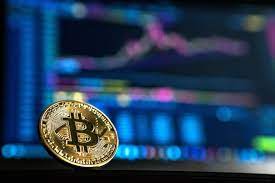Content
Bitcoin is still used to buy drugs online, but its use has spread far beyond that. The number of companies accepting bitcoin payments has increased over the last few years. Microsoft and travel website Expedia both take bitcoin, and Icelandic singer Bjork is also accepting bitcoin payments for her latest album.

Gemini, founded by the Winklevoss brothers , is a digital exchange that allows customers to buy, sell and store cryptocurrencies. It was recently awarded an operational licence by the Financial Conduct Authority, and is regulated by the New York State Department of Financial Services. “Stablecoins” could be a less risky way of investing in cryptocurrency, according to Gavin Brown, associate professor in financial technology at the University of Liverpool.
Safety, Controversy, And Legality Of Bitcoin
Crypto investor Anthony Pompliano predicted that bitcoin could surge to $100,000 (£73,647) by the end of 2021, Business Insider reported. But other analysts have dismissed such predictions as “outlandish”, Sky News said. You would think these turbulent splits would’ve proved disastrous for Bitcoin, yet all signs suggest they did little to impede its momentum. Prices barely moved after the creation of Bitcoin Cash, and Bitcoin Gold has had even less impact so far. What’s more, as each split allows Bitcoin to improve its blockchain, and as long as it’s able to weather the fallout, these turbulent episodes are actually proving worthwhile.
Does Amazon accept Bitcoin?
Amazon has a massive 47% market share of the US e-commerce retail market, with net revenues in excess of $280 billion (as of 2019), and plays host to over 150 million Prime users worldwide. And yet, from as far back as 2014, Amazon has refused to accept Bitcoin.
Retailers in Japan can now accept bitcoin payments thanks to a new law passed last year, and small businesses can accept bitcoin payments through simple plugins that add to WordPress websites. However, if the cryptocurrency was to move into the mainstream and become a recognised medium of exchange around the world, its value would likely increase dramatically. It’s impossible to say with any certainty, but anyone investing in bitcoin should be aware that it’s a risky thing to trade. Bitcoin had an incredible 2017 after increasing in value more 20 times from below $1,000 dollars to a peak of just under $20,000.
Transactions can be made with no middlemen – meaning there is no need to go through a bank. Cryptocurrency is a digital asset that is secured with cryptography – complex mathematical algorithms – and can be a means of exchange for goods. Bitcoin first became available to the public in 2009 and is regarded as the first established cryptocurrency in the world. But there is actually more value to Bitcoin than a volatile means of investment. If you’re thinking of investing in one you need to be prepared for your investment to go up or down. It’s even possible its value could fall to zero… making it worthless.
Bank Of England
But with the price of Bitcoin increasing almost daily, the potential payoff is growing higher as well. However, the increasing cost of mining equipment is eating away at potential returns. It’s estimated that today there are more than 1 million Bitcoin miners in operation, all competing for that next block to add to the chain every 10 minutes. This has sparked a bit of a Bitcoin arms race where companies worldwide are spending more and more money to develop faster chips and faster mining equipment. But as dictated by the coin’s creator, the reward is cut in half every time 210k new blocks are added to the chain — or roughly every four years. The proof of work concept means that as the number of miners is increasing, the puzzle gets harder, and more computing power needs to be thrown at it. Adding new blocks to the blockchain is the only way to release new Bitcoin into circulation.
Is it a good time to invest in Bitcoin 2020?
Bitcoin was the best performing asset class of 2020 as the chart below shows. Following MicroStrategy’s lead, in October payment platform Square announced that it had invested $50 million in Bitcoin, buying a total of 4,709 Bitcoins. Square said the investment represents about 1 percent of its total assets.
In August, a split over ways to improve Bitcoin transaction speeds resulted in the creation of Bitcoin Cash, a now separate cryptocurrency. Similarly, in October we saw the creation of Bitcoin Gold, conceived by a splinter group of developers that wanted to make it cheaper to mine the currency. As the cryptocurrency is decentralised, its development is decided by reaching a consensus within its community. As it is almost impossible to predict the value of the currency in the long term, or to judge how difficult it will be to mine, there are still too many uncertainties for some. There is also concern that the network will become oversaturated and unusable, as more people flood the mining community and make Bitcoin mining too difficult. Bitcoin is also incredibly easy to use, and there is no need to go through bank applications to set up an account. You are able to send and receive Bitcoins from anywhere in the world at any time, processed in minutes by the Bitcoin network.
It & Innovationwhat Is Bitcoin And Why Does Ransomware Love It?
Hailed by fans as a market-disrupting liberation, and demonised by critics as a dangerous, volatile creation, bitcoin and other cryptocurrencies are never out of the headlines for long. On December 16, 2020, the price of bitcoin hit $20,000 for the first time. On January 3, 2021, its value soared above $34,000, meaning the cryptocurrency had gained almost $5,000 in the first few days of 2021. Thanks to Bitcoin, we already know that blockchain is great for facilitating digital transactions, but it can also be used for formalising digital relationships through smart contracts.
This means you are in control, and your money is really your money. And with just a few taps of your phone, you can deposit, withdraw or exchange your Bitcoins. As Bitcoin was launched as a piece of open-source software, the Bitcoin network is today maintained by millions of cryptocurrency enthusiasts around the world. This means it is safe from attacks and hacks from individuals trying to disrupt it. Bitcoin is highly volatile, the price is highly speculative and the cryptocurrency market is largely unregulated. A paper wallet is a mechanism for storing bitcoins offline and is made by creating a brand new public address and private key onto paper. The digital wallet is like a virtual bank account, which allows the user to send or receive Bitcoins.
Another problem facing Bitcoin is that as more people decide to join the mining community, the more difficult the mathematical problems need to be. An indeterminate number of new miners makes it impossible to accurately predict how long it will take to mine Bitcoin each month. You can unsubscribe at any time and we’ll never share your details without your permission. But as Lehdonvirta quickly reminds us, it’s not just these sorts of attacks that are a problem – we need an eye on the future at all times.
However, the cryptocurrency has made steady gains before, such as at the end of 2017 – before collapsing in 2018 . Since 2009, a wide range of challenger cryptocurrencies, dubbed altcoins, have arrived on the scene. Bitcoin, the best-known and first major cryptocurrency, launched in 2009 and remains the market leader. Its market capitalisation — effectively its total worth — is $910bn, as at March 2. Ethereum and Cardano come in second and third, with respective market caps of $179bn and $39bn, as at March 2. By entering your details, you acknowledge that your information will be used in accordance with our privacy policy.
- You can unsubscribe at any time and we’ll never share your details without your permission.
- Ted Nelson, one of the web’s founding fathers, has suggested Nakamoto is actually mathematician Shinichi Mochizuki.
- In Bitcoin, all the information related to the transaction is captured securely by using maths, protected cryptographically, and the data is stored and verified across the entire network of computers.
- While Bitcoin is the most recognised cryptocurrency, there are a number of other digital currencies available.
- Where we give providers or products a customer experience rating or a product rating, these are compiled against objective criteria, using information which has been collected by our partnerFairer Finance.
For example, on January 9, 2018, Bitcoin and other major currencies crashed by £120billion after major monitoring platform Coinmarketcap decided to leave out the trading prices from South Korea. Like with all cryptocurrencies, this means if you choose to invest in Bitcoin, you can lose your money if the value of it drops.
It was invented in 2008 by the mysterious Satoshi Nakamoto and released shortly after to the public. People can track their ownership of Bitcoin by using a cryptocurrency wallet, which is a digital way to exchange payments.
The concept of digital monies such as bitcoin that people send online is not that complicated in itself — after all, transferring money from one online bank account to another is doing exactly that. Cryptocurrencies use blockchain technology — a way of sending data in cyberspace — to do this. But, different from normal currencies like dollars and pounds, cryptocurrencies are “decentralised”, which means they are not regulated by a financial authority, like a government or central banks. The means through which bitcoin and similar cryptocurrencies create trust is through a network-based ledger known as a blockchain. Much like traditional ledgers used by banks all over the world, blockchains contain records of all the transactions that have ever taken place using the bitcoin currency. Unlike bank ledgers, however, blockchains are handled by a network of autonomous computers, not under the control or influence of any single individual or institution.
Most importantly, Bitcoin is not controlled or owned by any individual, corporation, or government. It extensively uses cryptography and relies on a peer-to-peer network. Bitcoin has grabbed headlines over the past year for its massive spike in value and the ensuing rush to regulate it.
The verification is done after every transaction, for example when a cryptocurrency was sold and which account was credited. However, the more established Bitcoin and other cryptocurrencies become in the future, the more retailers and businesses will be willing to accept it as a legitimate currency. Cryptocurrencies are facing increasing regulatory threats and with continually fluctuating prices they do come with a high level of risk for investors. Bitcoin is probably the most well-known cryptocurrency but they come in many forms which include Ethereum, Ripple, Litecoin and Bitcoin Cash. These are all types of digital or virtual currency collectively known as cryptocurrencies. That year, investors worldwide started to buy up the cryptocurrency, and institutional investors followed suit.

Exchange Traded Notes are an investment product that tracks the price of cryptocurrencies in the same way that others track the price of gold or other investments. THE Financial Conduct Authority which creates the rules for the banking industry has warned people about the risks of investing in cryptocurrencies.
The first real mention and concept of a so-called cryptocurrency was published in 1998. The cypherpunks mailing list’s Wei Dai suggested the idea of a new form of money that uses cryptography to control its creation. It took a decade for this idea to gain traction and become a workable idea. Despite this, Rauchs still believes the outlook for bitcoin and blockchain technology is strong. “I would put it in the same category of revolutionary new technologies like the internet,” he says. But according to Rauchs, the current frenzy is bitcoin’s fifth bubble.
Each time a Bitcoin transaction is completed, the entire network is updated with this information so it can be validated by users on the network. Bitcoin is a digital currency (also referred to as ‘cryptocurrency’) that isn’t controlled by any country, treasury or central bank. As you become more familiar with the world of Bitcoin, you might come across Bitcoin with a capital ‘B’ compared to bitcoin with a lowercase ‘b’.









